Web page load time affects user experience. Bad user experience decreases the quality of experience from users. Users leave the website before even loading the contents and offers. Slow website speed decreases digital sales.
In this article, we have discussed what web page speed actually is! Importance of webpage speed, measure and how to improve web page speed with case studies briefly.
What exactly is Page Load Time?
For anyone including marketers, a webpage load time page is nothing but the time taken for a website to load and become functionally visible.
But what is behind the screen of Page Load Time? Why Marketers should care about Web page speed mechanisms?
For digital marketers and SEOs, you would have surely heard of how crucial your page load speed is. The search giant Google gives utmost importance to quicker loading speed, both in SEO and Google AdWords.
Mechanical Process of Web Page Loading
- whenever you click on a URL or type a URL in your browser window,
- The browser sends the request for that page’s information to its dear friend server via a vehicle by the name of the internet network.
- Now the server has hosted various websites in its home. Manually it will take forever it to find the exact website page its friend browser window has requested, but technology makes it easy by instantly locating the web page in the servers’ database.
- Now server sends all the files of the requested web page back to the browser via the same vehicle i.e. internet network.
- The browser window starts to parse, load, and render the web content and displays the web page to the user.
- This whole elaborative process takes place in seconds!
You might have observed the load time pages of various websites vary. That is because it depends on various factors such as the performance of the hosting server, the bandwidth of the internet network, website elements such as images, and videos, and the location of the requested browser and server placement.
More on this, let’s discuss in the section on improving page load time.
Why Website Speed Matters? Importance of Web Page Speed
Profitability increases by 32% if web page load time decreases from 3 Sec to 1 Sec. – According to Think With Google
In the context of sales, and marketing, User experience is the most important factor to grow business. Fast page Page load time ensures the distribution speed of value to consumers. Businesses with websites certainly have sales and conversion issues with slow webpage speed.
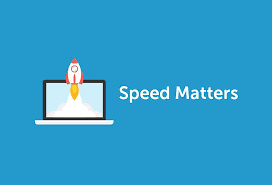
Let’s say you are browsing on the internet to buy a cake for your friend’s birthday.
You visit XYZ website, it took more than 2 seconds to load, you being the demanding internet user, got frustrated and abandoned the website. Poor XYZ website lost a customer, for the minor delay in loading speed!
Seriously, it just took more than 2 seconds! Don’t you have so much patience?
Well, it is not just you! 50% of internet users expect a web page to load in 2 seconds.
Such is the impact of the page load speed.
Did you just blink an eye? How much time did it take? Half a second! Well, a similar amount of delay in your website speed can drop your traffic and revenue by 20%. I am not making it up. The Google has reported it!
If you are a blog writer, you might be thinking, I need not worry much about these 2 seconds, 0.5 seconds and God knows what milliseconds delay! I am sorry, but I have to burst this balloon.
Financial Times conducted a survey on how page load speed affects the reading habits of internet users and the results are shocking!
(i) A 1-second delay in page load speed leads to a drop of articles read by 4.9%
(ii) A 3-second delay in page load speed lead to a drop of articles read by 7.2%
(iii) The blogs with high loading speeds were observed to have fewer subscribers
Enough of negative examples, let’s talk about something positive.
GQ magazine realized the power of page load speed and decided to transform its web page load time. They successfully reduced the web page load time from 7 seconds to 1.5 seconds.
The results were astonishing! Website unique visitors increased from 6 to 11 million. A whopping increase of ad interaction rate on the website by 108%.
In the image below, we are sharing the the relation and effects of webpage speed with sales and user experience.
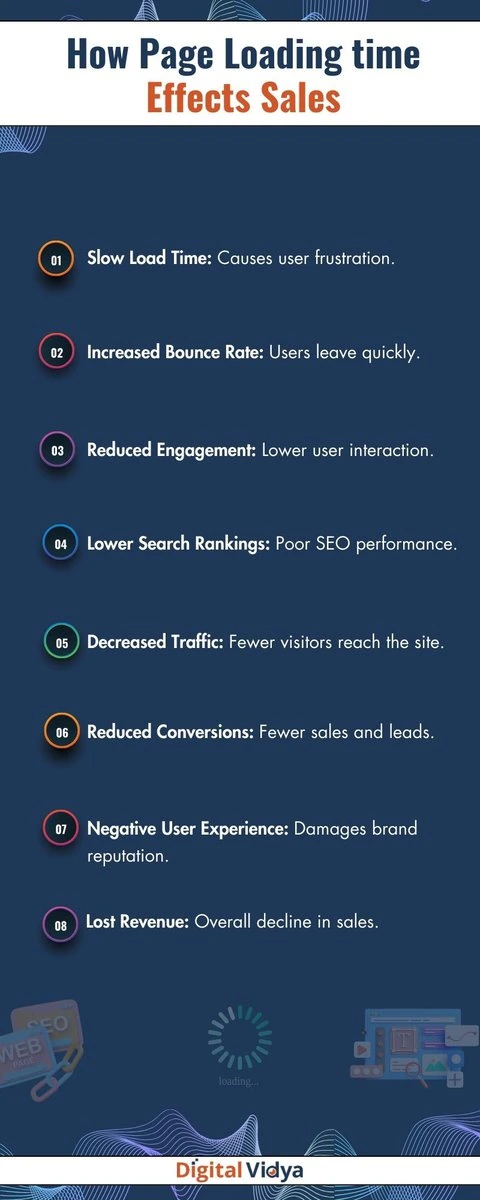
How to measure your Websites’ page speed?
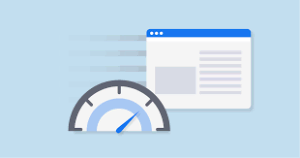
After knowing the importance of every second delay of your website speed, the first question to ask yourself is what exactly is my website speed?
You need to know your website won’t be a constant value. It varies based on the distance between the browser and your server, internet bandwidth of the user, new or returning user.
As much as the internet seems like magic, the reality is the data between browser and server are passed through signals and optical fibers. Higher the distance between them, higher the web page speed.
Still, you can get an idea of your website’s loading speed using the following tools. Ensure that you opt for options which mostly identify your users such as your major traffic’s location and highly used bandwidth in that area.
There are many tools in the market to measure the website’s loading speed. Some of the popular ones are;
1. Google Page Speed Insights

As Google extensively supports user-friendly websites with quicker loading speeds, it has its own tool to help web developers improve the web page load speed.
37% of desktop websites and 49% of mobile apps must improve their LCP- according to HTTP Archive.
Though this tool doesn’t give real-time web page load speed, it rates the performance of the website in the grade of 0 to 100 for both desktop and mobile devices.
Any website with more than 85 scores is a good performing website with respect to speed. The tool also gives optimization suggestions to improve the overall score.
2. Pingdom

Pingdom is a widely used website speed-testing tool in the market. It is a completely free tool. You can select major regions in the world to test your website speed.
Along with the real-time website speed, it also provides page size, number of requests sent, and waterfall of the page loading time.
3. GTmetrix
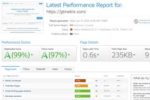
GTmetrix is another popular tool in the digital world to check the speed of the website. It gives almost all the metrics given by the Pingdom tool.
Additionally, it combines the optimization suggestions given by Google Page Insight and Yslow.
How to Improve Page Load Time?
Improving page load time is critical for user experience and conversions. Start by keeping your website lightweight; avoid unnecessary media elements. Optimize images to reduce file size without compromising quality. For business owners and marketers, we are sharing page speed optimization tips in our guide on- how to improve page speed.
Utilize caching solutions provided by popular CMS platforms like WordPress, as caching significantly reduces server load and speeds up page delivery. For global audiences, use a Content Delivery Network (CDN) to ensure faster connections by utilizing servers close to the user’s location.
Case Studies On Website Speed Optimization And Sales
A case study of Hubspot provides a bundle of information on how improvement in page speed affects the conversion and sales of various big giants in the market;
- Yahoo’s reduction in the page load time by 0.4 seconds may increase the traffic by 9%.
- Amazon burns $1.6 billion in sales per year for delay of page load time by 1 second.
- What happens when Bing slows down by 2 seconds? – It loses 4.3% revenue for every user, clicks reduce by 3.75% and queries drop by 1.8%.
It’s a costly business to play with website load speed! Read in-depth statistical analysis on conversion rate and webpage speed from Hubspot.
Conclusion On Page Speed Optimization For Sales
In a world of 4G and 5G, users expect instant loading. If your site lags, you’re likely to lose business to faster competitors. Start optimizing your website speed now; it’s crucial for staying competitive.
To get an in-depth understanding of Search Engine Optimization, join our Search Engine Optimization.
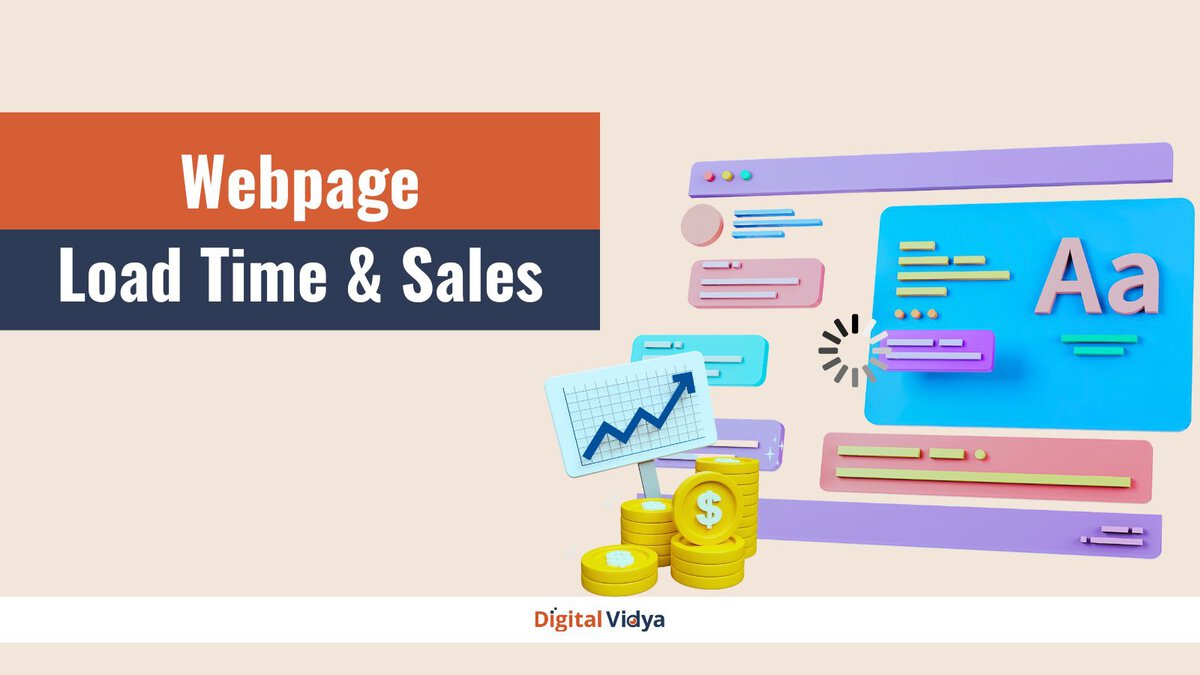








The blog was very informative and I was simply mind-blown by the minute details that you’ve collected to put here into a single blog. This was very helpful since as a fellow writer I’ve been trying to get my website running too. And I wanted the user experience to be pleasant. This blog really helped me tons in that way. Thank you for this amazing blog. Please do continue legit educative contents like this.
Hi Sruthi,
Thank you so much for appreciating our efforts.
Very nice & useful article. Does page time has an impact on ranking?
Hi Bhavitra,
Thanks for the appreciation.
Yes, page load time has an impact on the rankings. Pages that take longer load time usually have higher bounce rates and also leads to negative indexation which further adversely affects the ranking.
An amazing blog content you have defined properly about page load time. can you tell that page load time affects our earning?